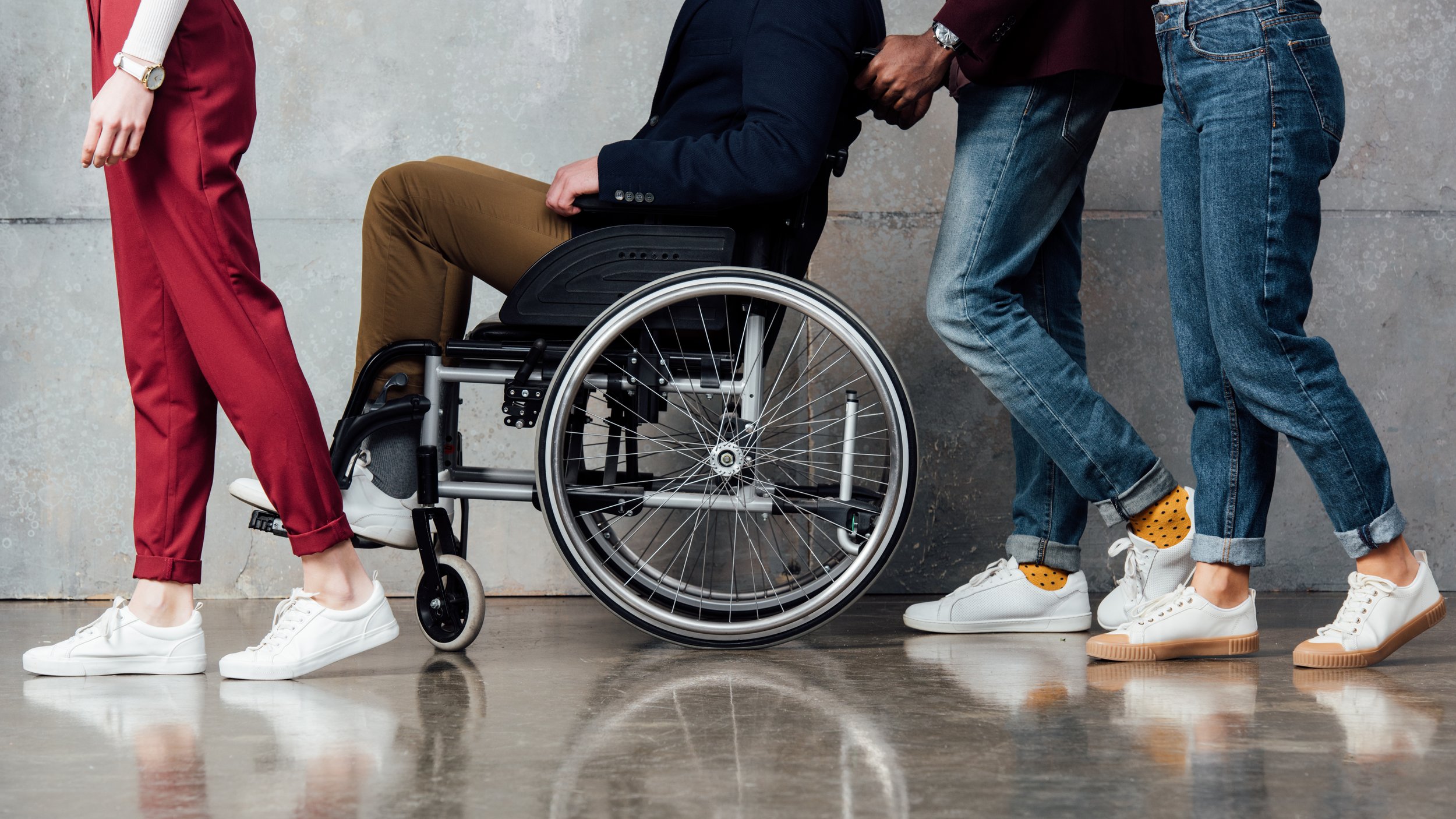
assistive technology.
Our physiotherapists can help you get the equipment you need.
Let our friendly and experienced physiotherapists help you find the right assistive technology (AT) to meet your needs and goals. Our physiotherapists have an expansive product knowledge of both high- and low-cost assistive technology and maintain ongoing supplier relations to connect you with the products that suit you. Our physiotherapists are experienced in navigating the guidelines and application process for assistive technology within the NDIS and can walk you through each step ofthe way.
Low-Cost Assistive technology
Mobility equipment (walking sticks, support frames).
Manual handling equipment (slide sheets, manual handling belts).
Transfer equipment (transfer aids)
Exercise equipment (dumbbells, resistance, bands, and balance equipment).
Standard wheelchairs
high-cost assistive technology
Mobility equipment (complex walkers).
Transfer equipment (standing lifters)
Standing frames and gliders.
Scripted manual, power assisted, and powered wheelchairs.
The process
1 assessment
Our physiotherapists will assess your equipment needs alongside your goals. This includes standardised assessments that may support justification of clinical need.
2 research
Our physiotherapists will research the products on the market that meet your needs. This may include products with different features, customisable options, and price points. They will walk you through the options available and help you work out which ones to trial.
3 trial
Our physiotherapists will coordinate an equipment trial with the supplier. We will attend the trial with you to provide clinical expertise on choosing the best equipment for you.
4 application
Our physiotherapists are skilled in completing assistive technology applications for mid- and high-cost AT funded under the NDIS. We can also provide support letters, or other clinical documentation to recommend the chosen AT from other funding sources.
5 Delivery
Our physiotherapists will attend the delivery of the equipment and work with stakeholders to document and implement the equipment safely.
6 follow-up
Our physiotherapists will schedule in a follow-up appointment a few weeks after delivery to re-assess outcome measures and provide further training if required, to ensure successful implementation.
Our Values
-

clinical expertise
Our physiotherapists have 3+ years of experience in community-based disability support.
-

Quality Care
We maintain NDIS, AHPRA, and APA registration. We stay up to date with clinical guidelines and research for best-practice care.
-

Person centred
We maintain longstanding relationships with all stakeholders and have a goals-based approach for person-centred care.
-

suits you
We travel to you for home and community-based physiotherapy that integrates into your life and routines.
FAQs - NDIS
-
Assistive technology is equipment or devices that help you do things you can’t do because of your disability.
-
Low-cost AT is equipment under $1,500 and is defined as: unlikely to cause harm in day-to-day life, available for trial and / or can be purchased in retail stores, easy to set up and safely use without professional advice.
Mid-cost AT is equipment between $1,500 and $15,000.
High-cost AT is equipment over $15,000. It is defined as: complex, such as a power wheelchair, known to have caused harm, used for a restrictive practice, require professional advice, setup or training for safe use.
Please visit the NDIS page for Assistive Technology for more information.
-
Equipment trials are recommended when exploring AT that is required to fit a user’s body measurements, functional needs, or integrate into a specific environment. This includes wheelchairs and scooters, positioning and pressure care equipment, transfer equipment, and all high-cost AT.
-
You will need to trial the equipment you are considering purchasing or applying for - this usually occurs over 1-2 sessions.
You may need to trial other options to demonstrate the assessment of your chosen AT as providing ‘value for money’ and meeting the NDIS criteria for ‘reasonable and necessary’.
-
AT assessors are professionals that can provide advice on your required AT. These include physiotherapists.
-
For Low-cost AT, a support letter justifying the clinical need relating to achievement of NDIS goals may be required.
For Mid-cost AT, a mid-cost report documenting the AT assessment and recommendation is usually completed to demonstrate proper assessment alongside NDIS guidelines of ‘reasonable and necessary’.
For High-cost AT a full NDIS Assistive Technology report will be required.
-
Low-cost AT can be purchased straight away under your assistive technology budget with a recommendation and support letter from an AT assessor.
Mid-cost AT do not require approval from the NDIS if the AT is already listed as a line item in your approved plan and funds have been allocated for purchase. If the AT is not listed in your plan, a mid-cost AT report and quote will need to be submitted to the NDIS for review.
High-cost AT will require submission of an application and approval from the NDIS before purchasing.
All NDIS supports must meet the reasonable and necessary criteria.
Get started with axis rehab, today.
Book a physiotherapy assessment today to connect with an experienced physiotherapist that can work with you and your support networks to help you achieve your goals.